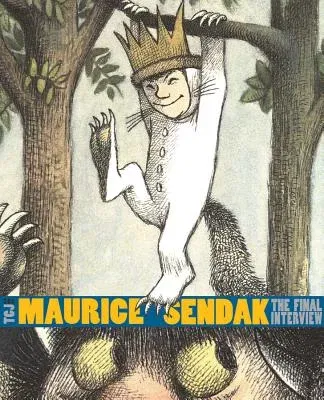The newly formatted, 600+ page Comics Journal has proved a resounding
success with 2011's edition, featuring a cover and interview with R.
Crumb, instantly selling out. 2012's #302 is sure to prove just as
critically and commercially exciting to comics readers worldwide. This
edition's cover feature is a long, intimate interview-portrait with and
of Maurice Sendak, the greatest and most successful children's book
author of the 20th -- and 21st -- century, the author of Where the Wild
Things Are, In the Night Kitchen, Outside Over There, Higglety
Piggelty Pop, and the illustrator of works by Herman Melville, Leo
Tolstoy, and Randall Jarrell. In his longest published interview, Sendak
looks back over a career spanning over 60 years and talks to Gary Groth
about art, life, and death (especially death), how his childhood, his
parents, and his siblings affected his art and outlook, his search for
meaning -- and also, on the lighter side, about his love (and hate) of
movies. Kim Thompson conducts a career-spanning interview with French
graphic novel pioneer Jacques Tardi; the two will explore the Eisner
Award-winner's genre-spanning oeuvre comprising historical fiction,
action-adventure, crime-thriller, "icepunk" and more. Art Spiegelman
conducts a wide-ranging aesthetic colloquy on classic kids' comics (Carl
Barks's Donald Duck, John Stanley's Little Lulu, Sheldon Mayer's
Sugar and Spike, and many more) with a group of comics critics and
historians. Michael Dooley moderates a roundtable discussion with Robert
Williams, Joe Coleman, Marc Bell, and Esther Pearl Watson about the
relationship between fine art and comics. Bob Levin provides a
revelatory investigation of the twisted history of the Keep on Truckin'
litigation and a fascinating biographical portrait of R. Crumb's lawyer,
Albert Morse. Warren Bernard writes a groundbreaking historical
investigation of the 1954 Senate Subcommittee Hearing on Juvenile
Delinquency. Plus: "How to Draw Buz Sawyer" by renowned newspaper
cartoonist Roy Crane (and a previously unpublished interview), comics by
Lewis Trondheim in English for the first time, Tim Kreider on Chester
Brown, a visual gallery of and commentary on proto-comics, and more.
The Comics Journal has been for 37 years the world's foremost critical
magazine about comics. It is now more vital than ever, a gigantic print
compendium of critiques, interviews, and comics.

